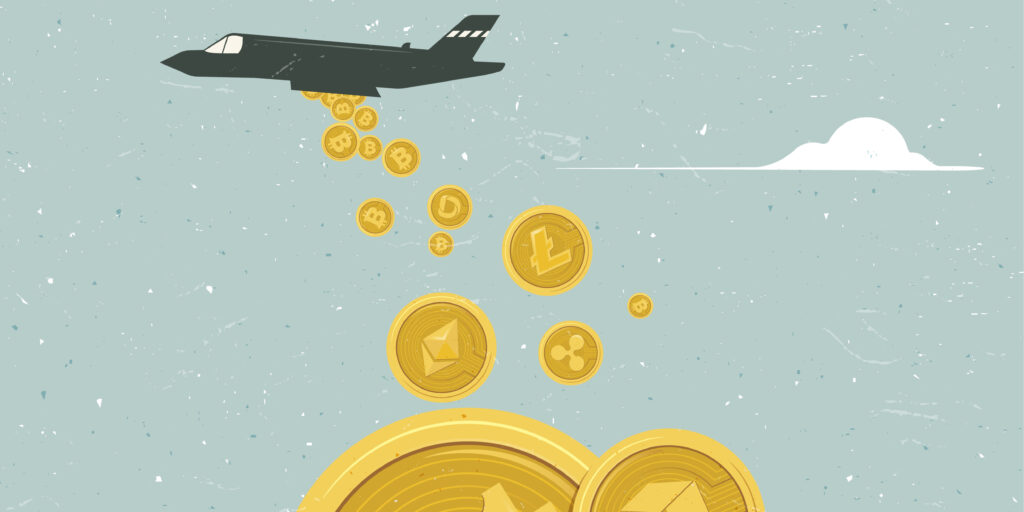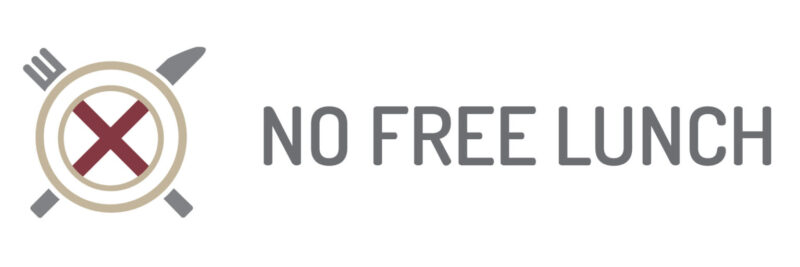What the US crusades against terror and drugs tell us about the war on crypto and how it might end.

Having taken what appeared to be a wait-and-see approach to regulating crypto, the US government has gone on the offensive at both the Federal and State level in what looks like the opening salvos of a War on Crypto. If you’re a hodler concerned about what impact this might have on adoption, reflecting on the futile but ongoing, Wars on Drugs and Terror might provide some insight.
The futility of the War on Drugs
The ‘War on Drugs’ was a term coined by Richard Nixon in 1971 as he looked to eradicate the escalating use of illegal recreational drugs, in particular cocaine.
Seized by the media, it has become a byword for the ongoing attempts by US administrations from both political parties – in cooperation with allies and international bodies – to stem the production, distribution and consumption of illicit drugs.
Despite spending an estimated $ 1 trillion waging that war, little to no progress has been made. The battle rages on, and if anything, drug consumption and the collateral issues of addiction and drug mono-cultures are getting worse, judging by the escalating epidemic of opioid addiction in the USA and the insidious power of global drug cartels.
Many would argue that this was an unwinnable war from the start, simply because it lacked a tangible enemy.
Drug consumption – its use and abuse – is a symptom, the root cause being issues like lack of social mobility, inequality of economic opportunity and a broad underlying demand for what illegal drugs offer – getting high.
Attacking symptoms not causes
Critics of the War on Drugs argue that many of those it criminalises are actually its victims. 40% of the male prison population in the USA is black, though it makes up just 13% of the overall population.
While society deals with the problems, the narcotics industry that has emerged to take advantage of the insatiable demand has grown so powerful as to capture and corrupt politics and parts of the banking system it uses to launder the massive proceeds.
It is politically more expedient to throw money and hardware at the symptoms than consider the policy changes that might address the underlying problems and remove the oxygen supply that maintains the huge power of cartels like the Sinaloa or Comorra Cartels.
The War on Terror
America has a long tradition of embroiling itself in protracted and futile wars attempting to defeat ideas, not armies, regardless of the human and financial cost.
His dad’s failure to win the War on Drugs didn’t stop George W Bush from embarking on another ill-conceived military campaign against an idea – the War on Terror.
Though triggered by a pivotal moment in US history – the 9/11 attacks on New York – the War on Terror was another battle with symptoms – acts of terror against US interests rather than causes – such as Imperialist American Foreign Policy and poverty in developing nations.
The War on Terror did eventually find a villain – Osama Bin Laden – but expanded its remit by proxy to the country that supposedly harboured him – Afghanistan.
The crusade soon spread across several targets that were perceived to represent a threat of terror – Iraq, Libya, Syria, Somalia – but often coincidentally are large oil producers.
The US is estimated to have spent an estimated $ 4 trillion over 20 years fighting this War on Terror in Afghanistan, which somehow morphed into an attempt to graft a one-size fits all democratic system on a reluctant patchwork quilt of tribal regions.
After incurring over 3,500 coalition soldier deaths and the loss of 110,000 civilian lives, the US withdrew from Afghanistan chaotically in July 2021.
Not only did they hand back control of the whole country to those they’d been fighting those two decades, but they gifted them state-of-the-art weaponry and may now have to recognise their legitimacy to convince them to help contain the very threat they fought them to mitigate. The threat of terrorism from even more fanatical groups than the Taliban.
What the War on Crypto, Drugs & Terror have in common
Following in the path of the McCarthy era war on communism, we can summarise the failures of the wars on drugs and terror with these common traits.
- They wasted unimaginable amounts of taxpayer money;
- They were futile and unwinnable;
- They weren’t wars waged against a specific enemy but in defence of an American value system.
- They penalise and criminalise the poor/powerless & benefit the industries that facilitate them – defence suppliers/contractors & the banking system.
We should expect the War on Crypto to follow a very similar path because it bears the same hallmarks.
Crypto is an idea, not a nation or defined organisation. It emerged as an alternative to uncontrolled money creation, spiralling national debt and erosion of spending power via inflation.
So why is crypto being fought? Because it undermines the foundation of US global power – the US dollar.
The US dollar exists in spite of those explicit systemic failures, which the US government – along with other world powers – lack the courage to address.
If trillions were sunk needlessly into a futile war in Afghanistan, expect the same in the legal and regulatory battlegrounds where crypto will be fought.
And just as the wars on drugs and terrors fed a powerful military and industrial complex, so the war on crypto will feed and be fed by an incumbent financial system embedded in government and its regulatory bodies.
How the war on crypto will unfold
As depressing as this reality is, remember, the US government failed in both the war on drugs and terror, and we should expect the same with crypto because, again, it is a war against symptoms, not causes.
The demand for cryptocurrency – decentralised money – is symptomatic of the failures of centralised financial systems like the US Dollar.
The United States is in debt to itself to the tune of over $30 trillion dollars, >100% of its GDP. Financial markets are a charade propped up by central stimulus; price discovery is broken.
These are the enemies that the US government should be fighting, and ironically, if it took their threat seriously, rather than doubling down with Central Bank Digital Currencies, it would actually strike the biggest blow to crypto by fighting the cause, not the symptom.
The futility of fighting monetary failure
It may have taken half a century, but attitudes are slowly shifting to reframe the problem that drugs represent. Recreational marijuana is now legal in 19 US States, and in none has the fabric of society been torn apart, as Richard Nixon’s original rhetoric would have you believe.
In fact, those states are using the tax revenue generated to plug massive holes in their budgets, caused in many cases by the effects of legal prescription drugs.
What was once demonised as the scourge of society is now one of the fastest-growing industries with publicly traded companies and a variety of ETFs.
Cannabis stocks have been on a roll this year, with rising expectations for full federal legalisation in the US pushing many marijuana-related equities to unprecedented highs. The S&P/TSX Cannabis index almost tripled in value between the US presidential election in early November and February 10.
https://www.ft.com/content/8db5d51b-ad69-48e7-9e58-fa2a191bdf96
The hope for crypto is that the experience is similar, but the process shorter. Just thirteen years since it was conceived in an obscure email group, Bitcoin ETFs are set to be approved.
It would, however, be a mistake to make a direct comparison between the threat posed to the American Dream by recreational drugs to that posed by a replacement to the very symbol of that ideal, the American Dollar.
In October 2021, Joe Biden described the looming threat of US debt default, due to the deadlock on how to raise the debt ceiling, as a meteor headed to crash into the US economy.
Two years later, and Congress is in deadlock, unable to agree on how to raise the debt ceiling further.
The stakes are that high, and right now, crypto is seen as the enemy, not the answer, so we should prepare for a long and bloody battle.
No Free Lunch
There is no such thing as a free lunch, but if you’re hungry to find out why, we’re here to help.
You can learn the meaning and origin of the no free lunch concept, as well as the broader philosophy behind the idea that nothing can ever be regarded as free.
We look at our relationship with money and truth, examining all of the supposed shortcuts, life hacks and get-rich-quick schemes.
